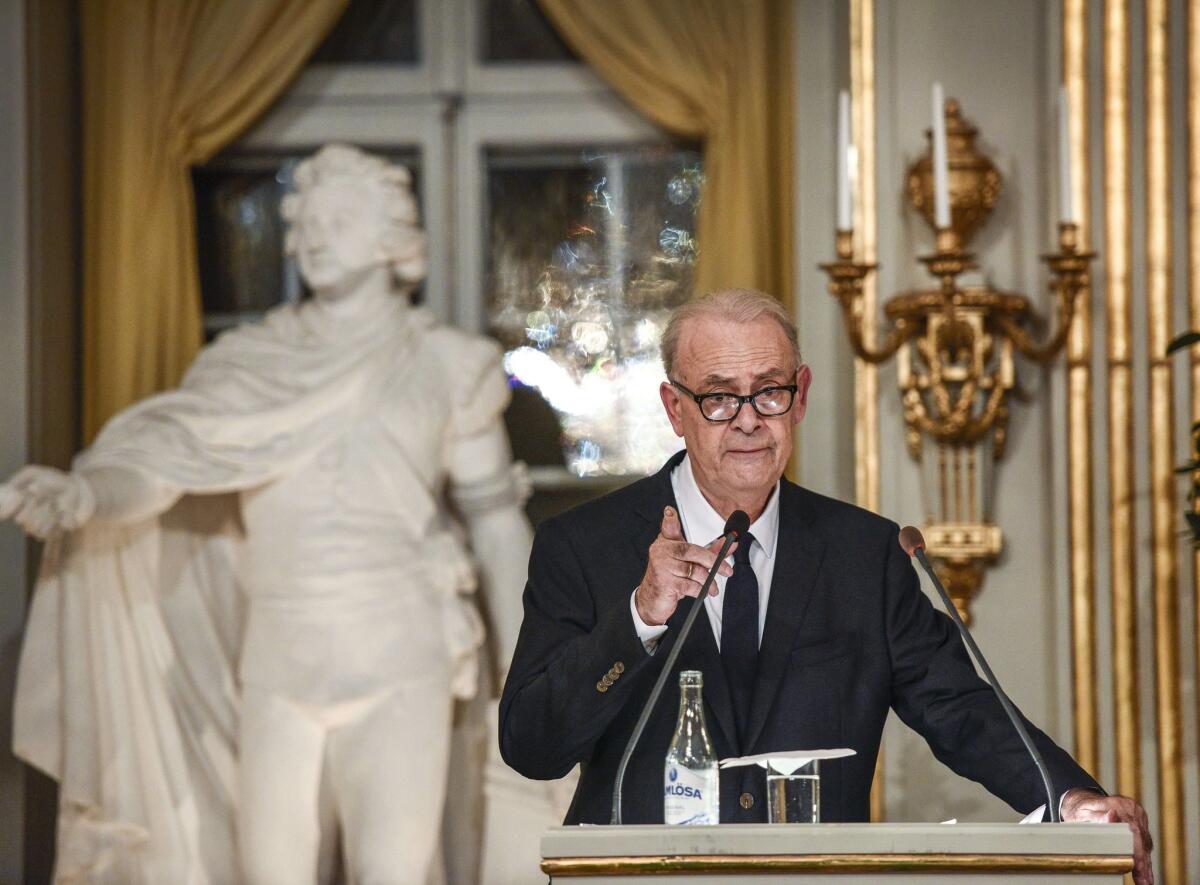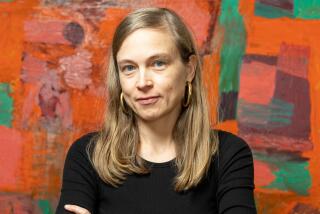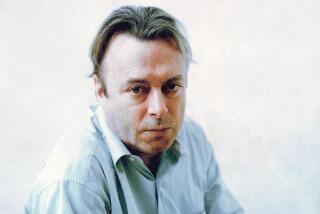Patrick Modiano accepts the Nobel, speaks of memory and oblivion

When French writer Patrick Modiano was named winner of the Nobel Prize in Literature earlier this year, American readers were caught by surprise. Only a handful of the novelist’s books had been published in the U.S., leaving many American book lovers asking, Modian-who?
That has been rectified somewhat, with some reissues and the hastened publication of his latest work in translation. And Sunday night, in a kind of worldwide introduction, Modiano gave his acceptance speech in Sweden. It circles through some of his ideas about writing in general and his own writing in particular. Here are some excerpts:
The announcement of this award seemed unreal to me and I was eager to know why you chose me. On that day I do not think I had ever been more acutely aware of how blind a novelist is when it comes to his own books, and how much more the readers know about what he has written than he does....
Writing is a strange and solitary activity. There are dispiriting times when you start working on the first few pages of a novel. Every day, you have the feeling you are on the wrong track. This creates a strong urge to go back and follow a different path. It is important not to give in to this urge, but to keep going. It is a little like driving a car at night, in winter, on ice, with zero visibility. You have no choice, you cannot go into reverse, you must keep going forward while telling yourself that all will be well when the road becomes more stable and the fog lifts....
Concerning my books, you were kind enough to allude to “the art of memory with which he has evoked the most ungraspable human destinies.” But this compliment is about more than just me. It is about a peculiar kind of memory, which attempts to collect bits and pieces from the past and the few traces left on Earth of the anonymous and the unknown. And this, too, is bound up with my year of birth: 1945. Being born in 1945 [in Paris], after the cities had been destroyed and entire populations had disappeared, must have made me, like others of my age, more sensitive to the themes of memory and oblivion.
Unfortunately I do not think that the remembrance of things past can be done any longer with Marcel Proust’s power and candidness. The society he was describing was still stable, a 19th century society. Proust’s memory causes the past to reappear in all its detail, like a tableau vivant. Today, I get the sense that memory is much less sure of itself, engaged as it is in a constant struggle against amnesia and oblivion. This layer, this mass of oblivion that obscures everything, means we can only pick up fragments of the past, disconnected traces, fleeting and almost ungraspable human destinies.
Yet it has to be the vocation of the novelist, when faced with this large blank page of oblivion, to make a few faded words visible again, like lost icebergs adrift on the surface of the ocean.
Book news and more; I’m @paperhaus on Twitter
More to Read
Sign up for our Book Club newsletter
Get the latest news, events and more from the Los Angeles Times Book Club, and help us get L.A. reading and talking.
You may occasionally receive promotional content from the Los Angeles Times.







